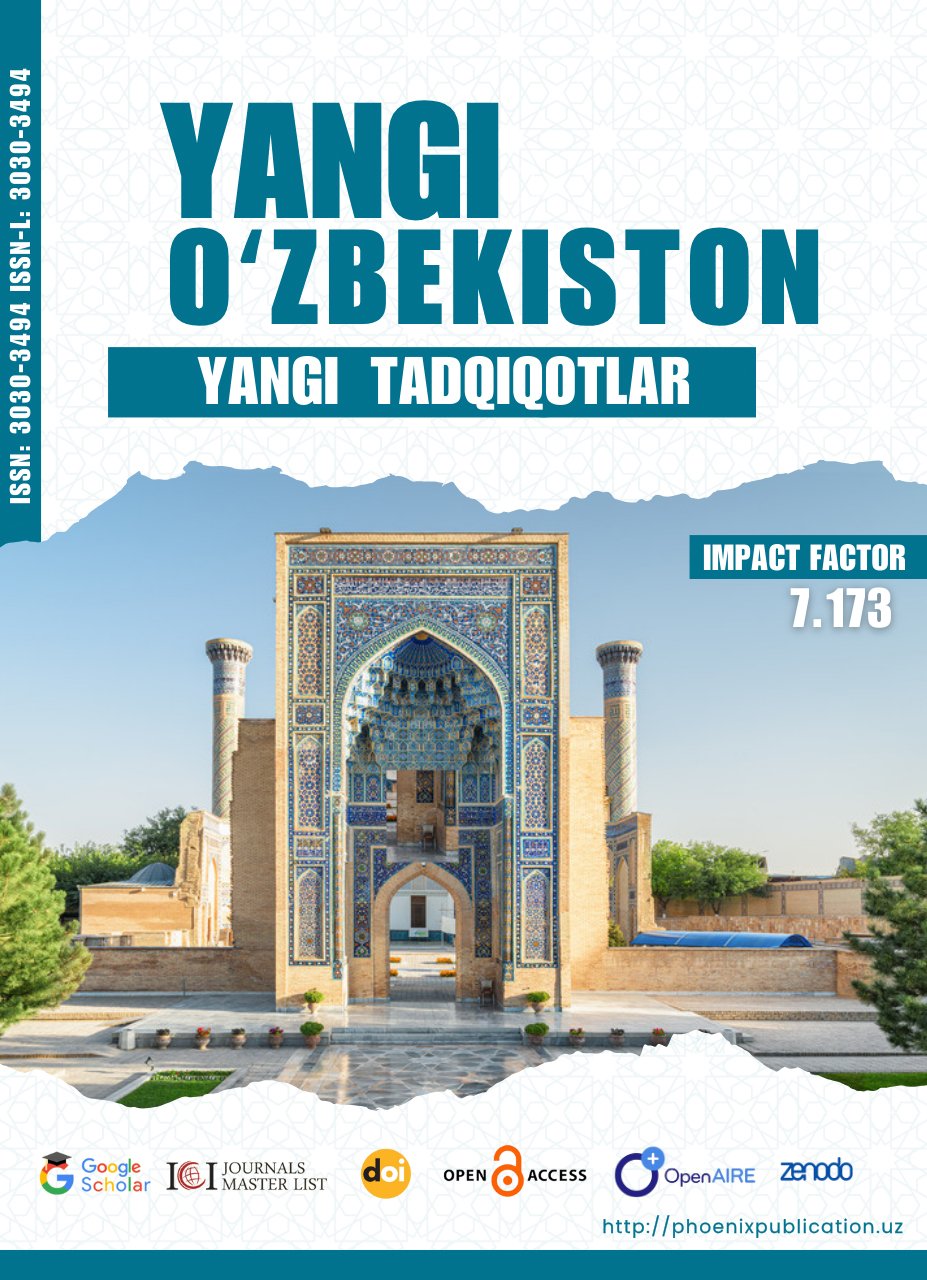Abstract
This article explores the significance of linguacultural studies in the field of linguistics, emphasizing its role in understanding the interconnection between language, culture, and national identity. The research demonstrates that linguacultural analysis offers a comprehensive view of how cultural values and worldviews are reflected and transmitted through language. The study highlights the increasing importance of linguacultural competence in multilingual and multicultural settings.
References
1. Hall, E. T. Beyond Culture. Anchor Books. 1976
2. Karimova, M. “Linguacultural Features of Uzbek Proverbs.” Journal of Language and Literature Studies, 2021. 3(2), 45–52.
3. Koptjevskaja-Tamm, M. “Approaching Linguistic Relativity: Language, Culture and Cognition.” Lingua, 2008. 118(5), 697–701.
4. Risager, K. Language and Culture: Global Flows and Local Complexity. Multilingual Matters. 2006.
5. Sapir, E. Language: An Introduction to the Study of Speech. Harcourt, Brace. 1921
6. Wierzbicka, A. Understanding Cultures through Their Key Words: English, Russian, Polish, German, and Japanese. Oxford University Press. 1997
